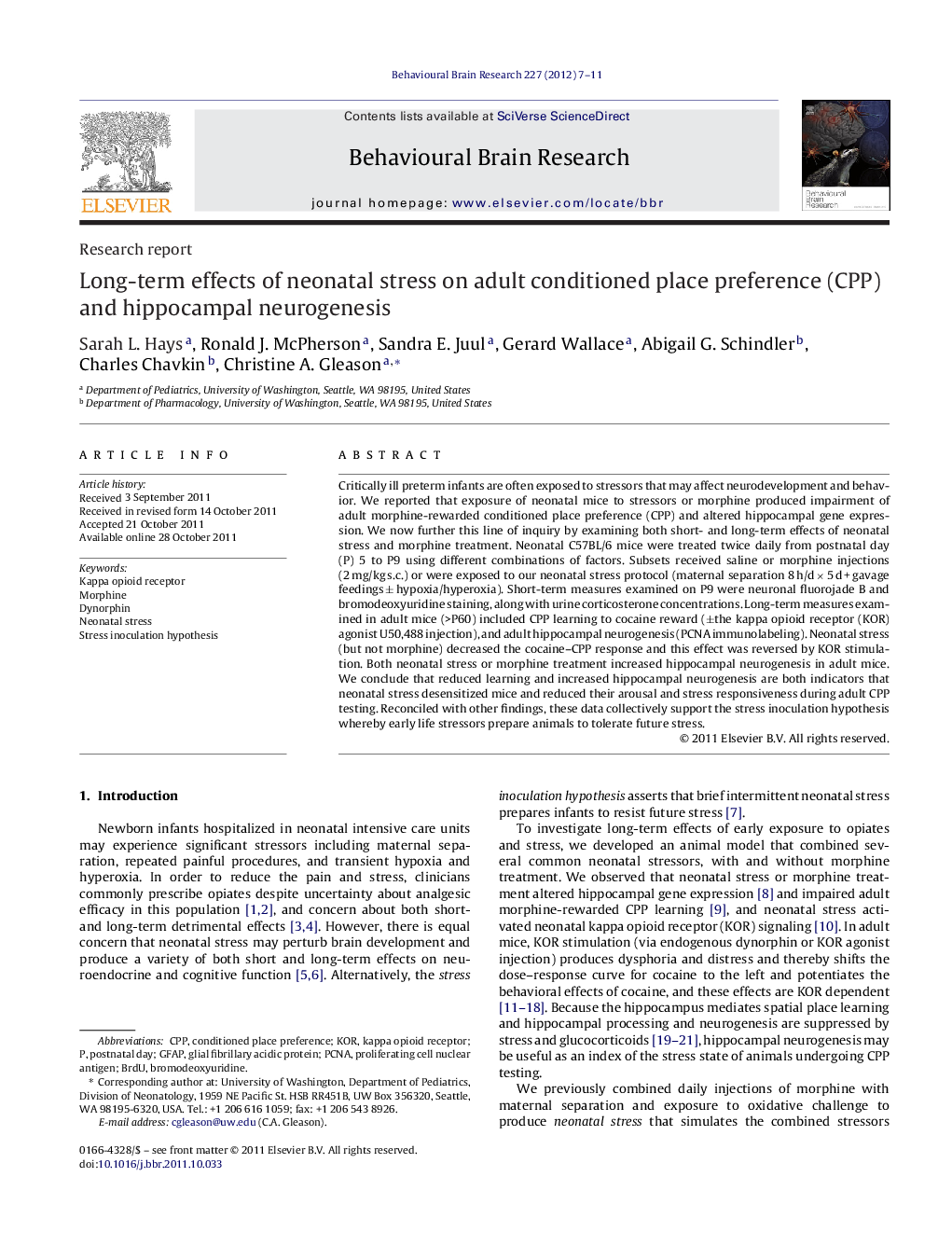| Article ID | Journal | Published Year | Pages | File Type |
|---|---|---|---|---|
| 4313379 | Behavioural Brain Research | 2012 | 5 Pages |
Critically ill preterm infants are often exposed to stressors that may affect neurodevelopment and behavior. We reported that exposure of neonatal mice to stressors or morphine produced impairment of adult morphine-rewarded conditioned place preference (CPP) and altered hippocampal gene expression. We now further this line of inquiry by examining both short- and long-term effects of neonatal stress and morphine treatment. Neonatal C57BL/6 mice were treated twice daily from postnatal day (P) 5 to P9 using different combinations of factors. Subsets received saline or morphine injections (2 mg/kg s.c.) or were exposed to our neonatal stress protocol (maternal separation 8 h/d × 5 d + gavage feedings ± hypoxia/hyperoxia). Short-term measures examined on P9 were neuronal fluorojade B and bromodeoxyuridine staining, along with urine corticosterone concentrations. Long-term measures examined in adult mice (>P60) included CPP learning to cocaine reward (±the kappa opioid receptor (KOR) agonist U50,488 injection), and adult hippocampal neurogenesis (PCNA immunolabeling). Neonatal stress (but not morphine) decreased the cocaine–CPP response and this effect was reversed by KOR stimulation. Both neonatal stress or morphine treatment increased hippocampal neurogenesis in adult mice. We conclude that reduced learning and increased hippocampal neurogenesis are both indicators that neonatal stress desensitized mice and reduced their arousal and stress responsiveness during adult CPP testing. Reconciled with other findings, these data collectively support the stress inoculation hypothesis whereby early life stressors prepare animals to tolerate future stress.
► Neonatal mice underwent repeated maternal separation and hypoxia/hyperoxia exposure. ► Subsets of neonatal mice were also given morphine injection (2 mg/kg bid). ► Adults showed decreased cocaine place preference conditioning after neonatal stress. ► Adults showed increased hippocampal neurogenesis after neonatal stress.
